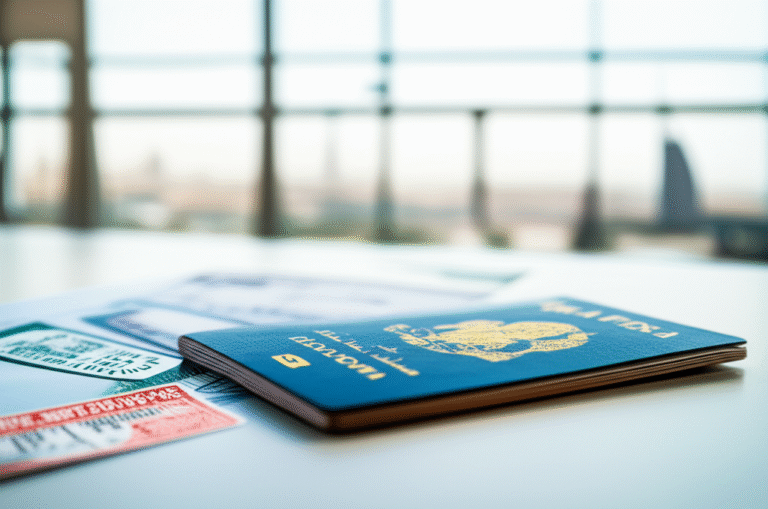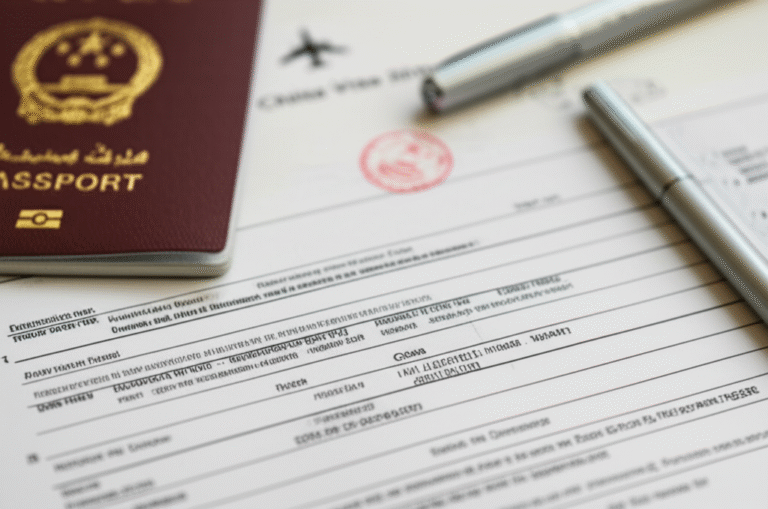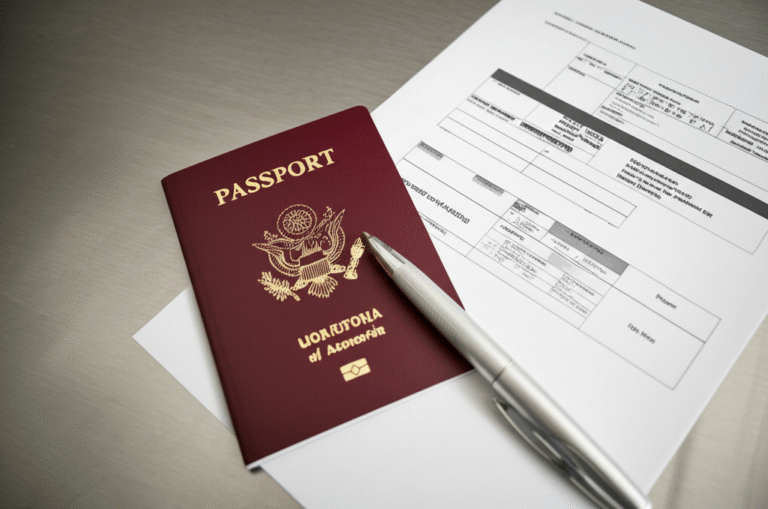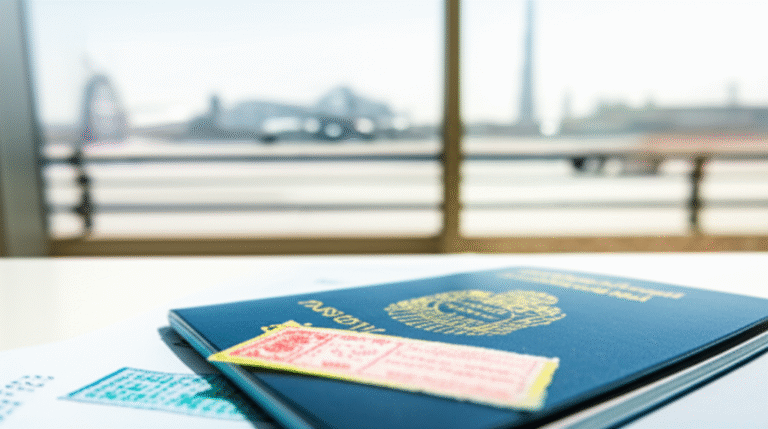How to Get Divorce in UAE: Essential Guide

Navigating divorce in the UAE involves specific legal procedures, varying based on your marital status, religion, and whether the process is amicable or contested. This guide will help you understand the essential steps, required documents, and key considerations to ensure a smoother journey.
Going through a divorce is undoubtedly one of life’s most challenging experiences. If you find yourself in the UAE and need to navigate this process, it can feel overwhelming, especially with unfamiliar legal systems. But don’t worry, you’re not alone, and there are clear pathways to help you through this. Understanding the procedures, knowing what documents you’ll need, and being aware of your rights can make a significant difference in how smoothly things proceed. This guide is designed to break down the essential steps for getting a divorce in the UAE, making it as straightforward and reassuring as possible.
Understanding Divorce Laws in the UAE

The United Arab Emirates has a legal framework that has been adapting to modern societal needs, particularly concerning family law. For a long time, Sharia law played a significant role, and it still does for Muslim residents. However, in recent years, the UAE has introduced federal laws that allow non-Muslims to adhere to specific personal status laws for matters like marriage, divorce, and inheritance. This distinction is crucial and will influence the specific procedures you follow.
Whether you are Muslim or non-Muslim, the process generally involves initiating a divorce case, submitting necessary documentation, attending court hearings, and potentially going through mediation. The specific court and the laws applied will depend on your religious affiliation and, in some cases, your nationality. It’s essential to understand these foundational aspects before diving into the practical steps.
Key Differences: Muslim vs. Non-Muslim Divorce
The primary distinction in divorce proceedings in the UAE lies between Muslim and non-Muslim residents. This is governed by Federal Decree-Law No. 29 of 2020 (Personal Status Law) for Muslims and Federal Decree-Law No. 21 of 2020 (Civil Personal Status Law) for non-Muslims.
- Muslim Divorce: Historically governed by Sharia principles, Muslim divorces are typically handled under the Personal Status Law. This involves specific procedures for reconciliation and if unsuccessful, the granting of divorce by a Sharia court. The grounds for divorce and the financial implications (like muta’a or deferred dowry) can differ.
- Non-Muslim Divorce: For expatriates who are not Muslim, the Civil Personal Status Law is generally applicable. This law allows for divorce based on mutual consent or proving fault, and it separates the proceedings for divorce, custody, and financial claims. It offers a more secular approach to these matters.
Amicable vs. Contested Divorce
Another critical factor is whether the divorce is amicable or contested. This significantly impacts the complexity, duration, and cost of the divorce process.
- Amicable Divorce: This is when both spouses agree on all terms of the divorce, including asset division, child custody, and spousal support. It’s usually a faster and less emotionally taxing process, often resolved through mutual consent procedures.
- Contested Divorce: This occurs when spouses cannot agree on one or more aspects of the divorce. It requires court intervention to resolve disputes, which can involve extensive legal arguments, evidence presentation, and potentially a longer, more expensive process.
Essential Steps to Get Divorce in UAE

The divorce process in the UAE can seem intricate, but by breaking it down into manageable steps, you can better prepare yourself. Here’s a comprehensive guide to the typical procedures.
Step 1: Initial Consultation with a Lawyer
Before anything else, it’s highly recommended to consult with a qualified family law attorney in the UAE. A lawyer can provide tailored advice based on your specific situation, explain your rights and obligations, and guide you through the legal intricacies. They can help you understand which laws apply to you and what documents you’ll need.
Reputable law firms in the UAE specialize in family law and can assist with:
- Assessing your case and advising on the best course of action.
- Explaining the legal requirements for divorce in your specific situation.
- Preparing and filing the necessary legal documents.
- Representing you in court, if required.
Step 2: Preparing Necessary Documents
Gathering the correct documentation is crucial for a smooth divorce process. The exact documents required may vary based on your circumstances and the court’s specific requests, but generally include:
- Marriage Certificate: Original and a translated copy if issued in a foreign language (attested by your embassy and the UAE Ministry of Foreign Affairs).
- Passports: Copies of both spouses’ passports and Emirates IDs.
- Birth Certificates of Children: If applicable, original and attested copies.
- Proof of Residence: Emirates IDs or other relevant documents.
- Divorce Deed (if applicable): For Muslim couples, this may be a pre-prepared document outlining agreed terms.
- Financial Documents: Such as bank statements, property deeds, and investment details, especially if financial settlements are involved.
- Power of Attorney (POA): If you are appointing a lawyer to represent you.
Important Note on Attestation: Documents issued outside the UAE usually need to be attested by the Ministry of Foreign Affairs in your home country and then by the UAE Embassy in your home country, followed by attestation from the UAE Ministry of Foreign Affairs upon arrival in the UAE. This process can take time, so start early.
Step 3: Filing the Divorce Case
The filing process depends on whether you are initiating the divorce or responding to your spouse’s petition.
For Muslim Spouses (Initiating Party):
- Consultation: Visit the local court or a legal consultant to understand the process.
- Registration: The case is typically registered online through the relevant court system or initiated through a legal representative.
- Personal Status Application: A formal application for divorce is filed, outlining the reasons and desired outcomes.
- Notification: The court will notify the other spouse.
For Non-Muslim Spouses (Initiating Party):
- Online Portal: Non-Muslim divorce cases are often initiated through the online portals of the Dubai Courts (e.g., the Online Case Management System) or Abu Dhabi Judicial Department.
- Filing the Claim: This involves submitting a claim form, detailing the grounds for divorce and any ancillary claims (custody, financial support, etc.).
- Service of Claim: The claim is officially served to the respondent spouse.
For Amicable Divorce (Mutual Consent):
Both spouses can jointly file for divorce based on mutual consent. This usually involves:
- Agreement: Reaching a full agreement on all divorce terms.
- Joint Application: Submitting a joint application to the court.
- Court Approval: The court reviews the agreement and grants the divorce decree if satisfied.
Step 4: Court Proceedings and Mediation
Once the case is filed and served, the court process begins. This can involve several stages:
- Acknowledgement: The respondent spouse is given a period to acknowledge or respond to the divorce petition.
- Mandatory Mediation (for some cases): In certain situations, especially in Dubai for non-Muslims, there might be a mandatory referral to mediation to encourage reconciliation or to help parties reach an agreement on outstanding issues.
- Court Hearings: If mediation fails or is not applicable, the case proceeds to court. This involves presenting evidence, arguments, and legal submissions.
- Judgement: The judge will issue a divorce decree based on the evidence and applicable laws.
The length of this stage varies greatly. Amicable divorces can be finalized within weeks, while contested cases can take months or even years.
Step 5: Issuing the Divorce Decree
After the court has made its decision, a formal divorce decree will be issued. This is the legal document confirming that the marriage has been dissolved. It will typically outline the terms of the divorce, such as child custody, alimony, and division of assets, if these were part of the proceedings.
You will need certified copies of this decree for any subsequent administrative processes, such as updating your visa status, changing your name on official documents, or remarrying.
Special Considerations

Beyond the core legal steps, several other factors are important to consider when divorcing in the UAE.
Child Custody and Alimony (Spousal & Child Support)
Child custody is a sensitive issue and is always decided in the best interests of the child. The UAE legal system prioritizes the physical and emotional well-being of children.
- Custody: For mothers, custody is typically granted until the children reach a certain age (e.g., 7 years for boys and 9 years for girls under Sharia law, though this can be extended or modified based on the child’s best interest under new laws). For non-Muslims, custody can be awarded to either parent or shared, based on joint responsibility and the child’s welfare. The father typically retains guardianship (wilaya).
- Visitation Rights: The non-custodial parent usually has defined visitation rights.
- Alimony/Spousal Support: This is known as Nafaqah under Sharia law. It can include financial support for the wife during the iddah period (a waiting period after divorce before remarrying) and maintenance for children. For non-Muslims, financial settlements are based on principles of fairness and need.
- Child Support: This covers the child’s expenses, including education, healthcare, and living costs. It is a significant factor in divorce proceedings.
Legal Assistance is Key: Navigating these aspects requires expert legal advice to ensure fair outcomes for both parents and children.
Division of Assets and Debts
The division of marital assets and debts is another critical component of divorce. The approach varies based on the legal system applied and whether prenuptial agreements exist.
- Muslim Divorce: Generally, assets acquired by each spouse before the marriage remain their separate property. Assets acquired during the marriage may be subject to division based on contribution and intent. Dowry (mahr) also plays a role.
- Non-Muslim Divorce: The Civil Personal Status Law for non-Muslims allows for a more equitable distribution of assets acquired during the marriage. Courts will consider contributions made by each spouse.
- Joint Accounts and Properties: These are typically divided fairly, considering mortgage payments and contributions.
- Debts: Marital debts will also be assessed and allocated between spouses.
It is advisable to have a clear inventory of all assets and liabilities before engaging in discussions or court proceedings.
Divorce for Expats in the UAE
Expatriates living in the UAE have specific provisions available to them, especially with the introduction of the Civil Personal Status Law for non-Muslims.
- Choice of Law: Non-Muslim expatriates can choose to apply their home country’s laws for divorce, custody, and financial claims, instead of UAE law, provided their home country’s laws are applied in a non-discriminatory manner. This is a significant development and can be complex to navigate.
- Foreign Court Orders: If a divorce decree has been issued in your home country, it may be enforceable in the UAE, but this requires specific legal procedures for recognition.
- Visa Status: Divorce can impact your residency visa. You will generally have a grace period to amend your status or find a new sponsor. Your lawyer can advise on this.
Consulting with a lawyer experienced in international family law in the UAE is essential for expatriates to understand their options regarding choice of law and the implications for their residency.
The Iddah Period (for Muslim Women)
For Muslim women, there is a mandatory waiting period after divorce known as iddah. This period is intended to confirm the woman’s non-pregnancy and prevent confusion about paternity. The duration typically varies:
- Three Menstrual Cycles: If the woman is menstruating.
- Three Months: If the woman is not menstruating (e.g., due to age or medical reasons).
- Until Childbirth: If the woman is pregnant.
During the iddah period, the husband is typically obligated to financially support the wife (nafaqah) and she is expected to observe specific restrictions, such as remaining in the marital home unless there are safety concerns.
Frequently Asked Questions (FAQs)

Here are some common questions people have about getting a divorce in the UAE:
Q1: Can I get a divorce in the UAE if I’m not Muslim?
A1: Yes, absolutely! Since the introduction of the Civil Personal Status Law, non-Muslims in the UAE have clear legal provisions for divorce, custody, and financial matters that do not necessarily rely on Sharia principles.
Q2: How long does it take to get a divorce in the UAE?
A2: The timeline varies greatly. An amicable divorce with full agreement can be finalized in a few weeks. However, contested divorces involving disputes over custody, assets, or other issues can take several months to over a year.
Q3: Do I need a lawyer to get a divorce in the UAE?
A3: While it’s not always mandatory, it’s highly recommended. A qualified family lawyer can guide you through the complex legal process, protect your rights, ensure all paperwork is correct, and represent you effectively in court.
Q4: What happens to my visa after a divorce in the UAE?
A4: Divorce can affect your residency visa. Typically, you will be granted a grace period (often 30 to 90 days, sometimes longer) to adjust your status, find a new sponsor, or depart the country. It’s crucial to consult with your lawyer or the immigration authorities for specific advice.
Q5: Can I get divorced in the UAE if my marriage was registered abroad?
A5: Yes, you can generally initiate divorce proceedings in the UAE even if your marriage certificate was issued outside the country, provided you meet residency requirements and the UAE courts have jurisdiction. You will likely need to get your foreign marriage certificate attested and translated.
Q6: What if my spouse is refusing to divorce?
A6: If your spouse is unwilling to divorce, you can still pursue a divorce through the courts. For Muslim couples, this might involve proving grounds for divorce. For non-Muslims, you can file a contested divorce case, and the court will make a decision based on the evidence presented.
Conclusion
Embarking on a divorce journey in the UAE can feel daunting, but with knowledge and the right support, it is a manageable process. Understanding the legal framework, the steps involved, and the specific considerations for your situation is the first and most important step toward resolution. Whether you are a Muslim or non-Muslim resident, the UAE legal system provides clear pathways to dissolve a marriage.
Remember, seeking qualified legal counsel is invaluable. A good lawyer will not only navigate the complexities of the law for you but also offer much-needed reassurance and clarity during this emotional time. Focus on taking things one step at a time, and know that you have the resources and information available to guide you through this transition towards a new chapter.





